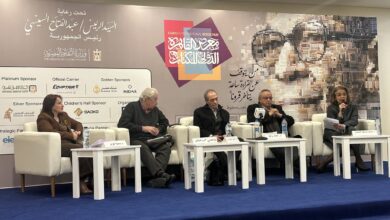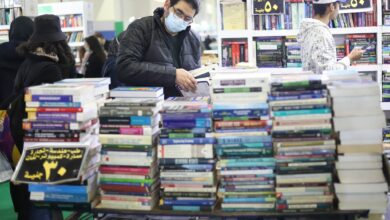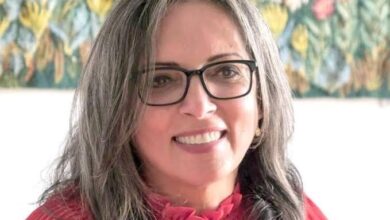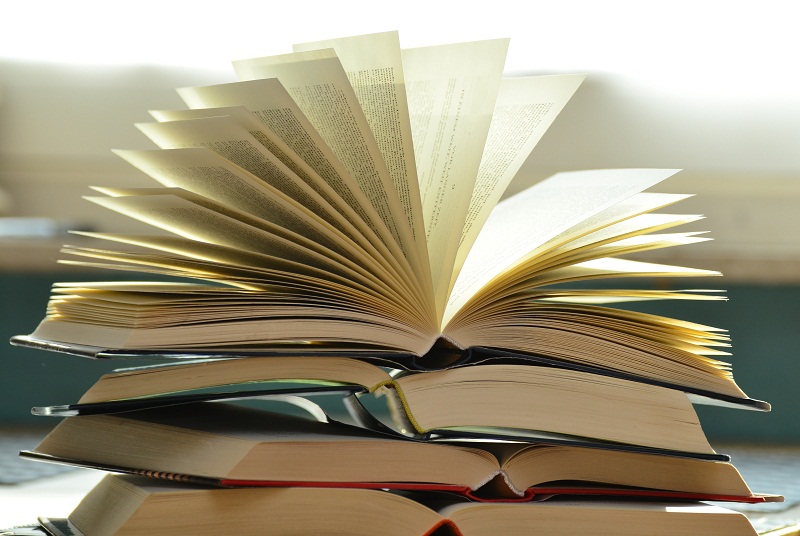Born in Canada in 1922, and dubbed "the pioneer of Arabic-to-English translation of our time" by literary icon and critic Edward Said, Denys Johnson-Davies is a well-regarded translator who has served Arabic literature like no other.
Over sixty years, Davies has translated 25 volumes of novels, stories and poems, alongside numerous religious texts, interviews and folk tales. He was the first to translate the works of Naguib Mahfouz, Mahmoud Taimour and Tawfik el-Hakim, and enjoyed an intimate relationship with several illustrious Arab writers.
The American University Press House recently published Davies’ autobiography, titled "Memories in Translation: A life between the Lines of Arabic Literature". The book was translated by Kamel Youssef Hussein and published by el-Yarbou in the United Arab Emirates.
Davies spent his life traveling between Arab cities and towns. Among other jobs, Davies worked as the manger of a radio station and a university lecturer. Davies currently spends his time between Cairo, Fayoum and Morocco.
Davies, who has a razor-sharp memory and an intense passion for his work, is currently translating a new volume of short stories.
Davies’ early life didn’t exactly pave the way for a career in translation. At the age of two, Davies left Canada with his father and they moved between Egypt, Sudan, Uganda and Kenya. At twelve, Davies flew back to London, which seemed drearily cold and snowy to him. However, Davies, who says that he considers himself Egyptian having lived most of his life in Egypt, could only leave England after World War II drew to a close.
Davies says that a string of coincidences led him to study Arabic Literature. When he was twelve, Davies enrolled in a boarding school in Birmingham where he took up squash, eventually becoming one of the school champions in the game. Then the school headmaster decided to ban children below 16 from playing the game. The headmaster’s seemingly arbitrary decision pushed Davies’ father to pull his 14-year-old child out of the school.
"What do you want to do now?" the father asked.
Unhesitatingly, Davies replied, "I want to study the Arabic Language."
Davies recalls that at the time he had already forgotten whatever Arabic words he had picked up during his stay in Egypt and Sudan. Still, he chose Arabic. Davies attended the Eastern Languages School of London University until he was 16. Then he joined Cambridge University to study Arabic and Farsi. Davies was the only student studying Arabic at the time. But he only mastered the Arabic language when he joined the BBC and a decision was taken to move the employees from London to the countryside, which was deemed a safer place. Of all 40 people affected by the decision, Davies was the only English person.
With their encouragement and help, Davies became proficient in the language. When the war ended, Davies flew back to Egypt. There, he taught English literature and translation at Fuad University. His students included Fatma Moussa and Ehsan Abbas.
Davies says that the deputy supreme guide of the Muslim Brotherhood Mohamed Habib was one of his students at the British Council back in 1945. They developed a deep friendship and one day Habib invited Davies to visit the Egyptian countryside.
Davies was there on time for the visit. Habib had brought along a galabeya and turban for Davies to wear. "You can’t possibly go with me to Zagazig wearing your regular clothes! That’s why I brought you those," explained Habib.
Davies’ visibly English features contrasted sharply with the traditional rural attire he was wearing. They arrived at one of the villages close to Zagazig where Davies met with poor peasants for the first time. He lived their life, sleeping on the ground and eating their food. Despite the grinding poverty in which they lived, the village residents were amazingly generous towards him.
Davies recalls that one night he was smoking hashish when a police officer barged in. The police officer greeted everyone, but Davies couldn’t help feeling scared.
"Hello Kamerad!" said the officer addressing Davies.
The officer mistook Davies for a German prisoner of war fleeing the English prisons. At that point in time it was quite common to come across Italian and German prisoners of war. So the Egyptian officer didn’t spill the beans, believing Davies to be German.
A similar situation occurred on a public bus. Davies was on his way back to Cairo when an English officer got on the bus. The passengers, thinking Davies was some German war hero fighting against the English, covered him up.
A couple of times Mohamed Habib took Davies to visit Hassan el-Banna, the founder of the Muslim Brotherhood. According to Davies, el-Banna "had a great sense of humor. Although he knew I was English and not Muslim, he treated me very nicely."
Habib, as Davies recalls, was working as a sailor on the Royal Yacht at that time. He wrote a manuscript titled "40 Days in the Mediterranean Sea" that recorded the King and his officers’ scandals on the yacht. In order to conceal his manuscript, he hid it with Davies.
"My friend Davies, are you a spy?" Habib asked Davies one day. Surprised at the odd and offensive question, Davies replied calmly, "How come you’re asking such a question when we’ve been friends for such a long time and you’ve even hidden your manuscript with me?"
Davies also recalls that he used to write for an Egyptian English-language weekly magazine called "Sphinx". He wrote profiles of prominent Egyptian figures, such as movie stars Naguib el-Rihani and Marie Moneeb.
Davies’ strong relationship with Egyptians almost got him expelled from the country. Davies once wrote a piece criticizing how the English looked down their nose on Egyptians, only to be visited the following day by an English officer who told him he was summoned by the embassy. There, intelligence officials threatened to kick him out of the country if he ever wrote in such a critical tone again.
Davies’ weekly articles not only roused the wrath of the English, they also ruffled the feathers of King Farouk. Davies had written a review of Tawfik el-Hakim’s "Yawmeyyat na’eb fel aryaaf" (Diary of a country prosecutor), taking a swipe at the oppression suffered by the peasants. By some stroke of rotten luck, Davies’ article found its way to the king. Then rumor had it that the angry king was planning to expel Davies from the country. Fearing his fate, Davies rushed to his friend Yehia Haqqi for help. Haqqi called up Edgar el-Gallad, the magazine’s chief editor, and the matter was finally settled with an apologetic article posted in the magazine.
In 1949, Davies left Cairo, working as a translator for a number of companies until 1954, when he returned to London. Under pressure from his father, he continued his studies at law school, and then opened a translation office. Soon, however, he lost interest in that kind of business and established an Arabic literary magazine that he named Aswat (Voices). The magazine published 12 issues and ran articles by Youssef Idris, Zakaria Tamer, and Ghassan Kanafani. Davies also supervised a weekly TV program for the Ministry of Information called Adwaa wa Aswaat (Lights and Voices). Soon again, Davies got bored of London and left for the United Arab Emirates to work as manager of an Arabic radio station.
But deep inside Davies was looking for a chance to indulge his passion for translation. To quench that thirst, Davies traveled to Beirut, then Cairo, then east to the Emirates and west to Morocco. Over the years, Davies has translated a wide range of literary works into English, and established magazines and book series to spread Arabic literature in England.
But literary translation remained Davies first love. Davies is currently translating a series of short Arabic stories, bringing the total of his translated works to thirty.
When asked why translated Arabic literature didn’t penetrate the West as was expected after Naguib Mahfouz won the Nobel Prize, he said, "Literature is a product that needs marketing like any other. So if Arabs wish to spread their literature in England for instance, then they should find a publisher who can market their product.
I had established a series of translated Arabic books that was published by Heinemann. But when the new owner of Heinemann found the series was making a loss, he decided to stop publishing it unless it got subsidized. Although the amount of the subsidy required was as low as LE 5,000, the officials of the rich Arab country to which I had traveled seeking funding wouldn’t grant me the money.
That’s how the series, which promised to be the first project to translate Arabic literature into English, collapsed. Nobody wants to serve Arabic literature– not even Arabs themselves.
The English have their writers. Arabic books only sell a few hundred copies although they were well-received by English critics. The French finance some translations because they have a considerable Arab community, but they’re not good at Arabic and prefer to read in French.
In short, the situation is extremely bad. In most cases the publishers are academic ones that publish books for students."
Davies stresses that the problem is with publishers. "Translating Arabic literature needs an English publisher who receives some form of indirect funding, such as purchasing some of the copies published," Davies explains.
When asked what criteria he’ll be using to choose the Arabic short stories he’s currently translating for the American University Press House, Davies says, "Besides my personal taste, I think of what the English reader likes. But some writers and publishers have influence over the marketing process. For instance, when I translated for the late Yehia el-Taher Abdallah, who is one fine author, the publisher told me contemptuously, ‘Yehia el-Taher is a tramp, why are you translating for him?’"
It remains astounding how one man can put that kind of effort into a project of such a size, a project normally carried out by institutions not individuals. Sixty years on, Davies is still working in silence, doing what he loves the most–translation.




